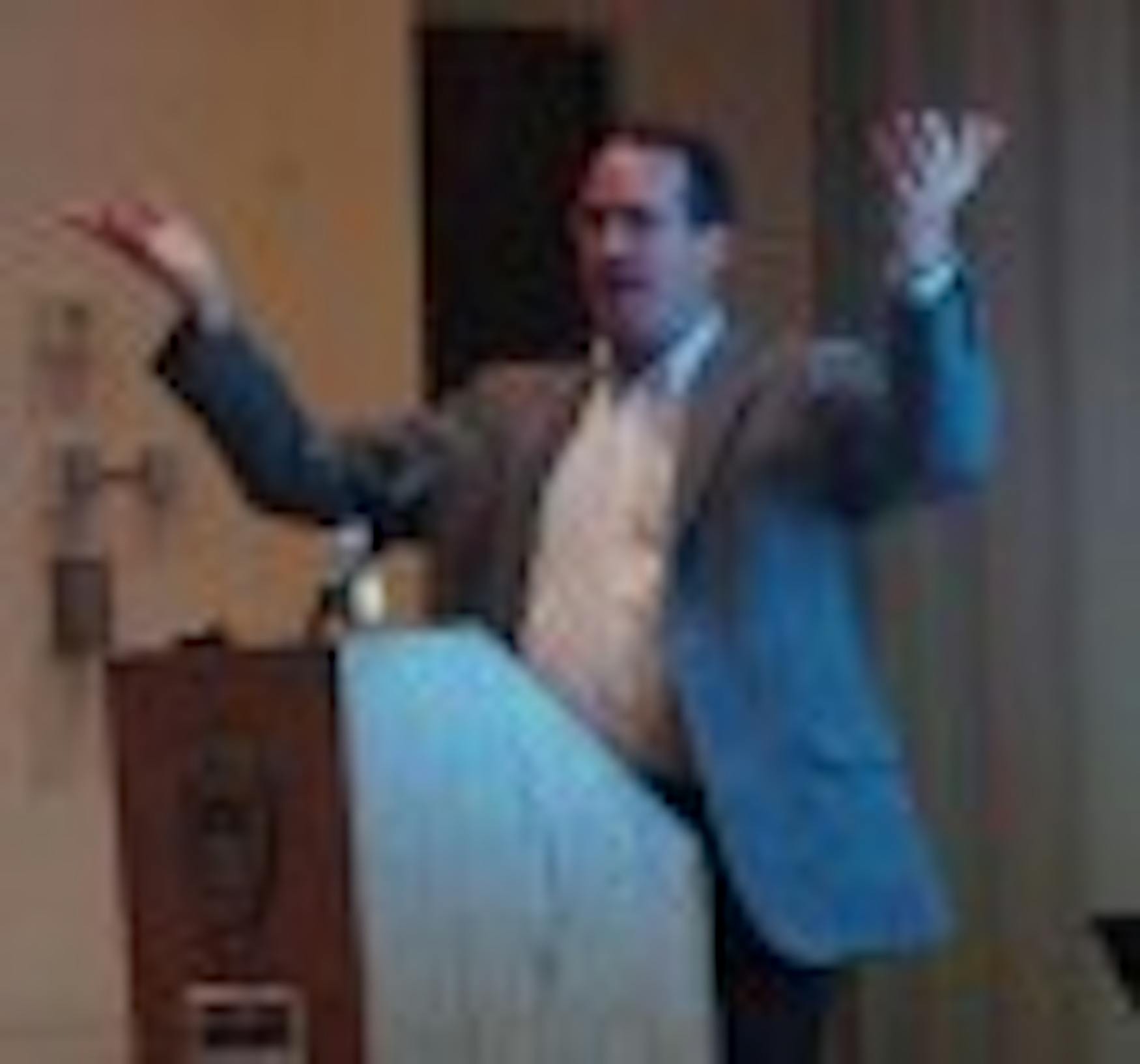Fuhrer addresses US recovery
Last Wednesday, members of the Brandeis Economics Club as well as the Hiatt Career Center, the Business program and the Economics department brought Executive Vice President and Senior Policy Adviser of the Federal Reserve Bank of Boston Jeffrey Fuhrer to discuss the role of the Fed during recovery from a recession and the current action being taken by the Fed to achieve that goal.The presentation, titled "The Role of the Federal Reserve in Economic Recovery," focused on the challenges of recovering from a recession, what the current economic environment is like and what the Fed is doing to aid in this recovery process.
Fuhrer's lecture pointed to persistent numbers of high unemployment, undesirable low inflation and a "moribund" residential sector as reasons for a slow recession recovery. He also pointed to the declining value of housing and foreign markets at risk of collapse as other reasons for economic concern.
"Unemployment is high, and it's likely to remain so for quite some time," he said.
Fuhrer explained that it was unlikely that the unemployment rate was due to structural unemployment, such as having undesirable skills, geographic mismatch of job openings or extended unemployment benefits.
"The idea that you wouldn't take a job that was offered because you're making 50 percent of your salary in unemployment benefits . doesn't sound quite right," he said.
Fuhrer described the Fed's second round of quantitative easing, QE2, policy tools as the way that the Fed is attempting to raise inflation and decrease unemployment. The QE2 plan has been to buy United States treasury bonds in order to lower interest rates and raise inflation, he said.
"It's encouraging to see that the unemployment rate has dropped [from 10 percent to just under 9 percent]," Fuhrer said.
"In fact, in the congressional charter that defines the responsibilities of the Federal Reserve says we're responsible for inflation staying stable and keeping the unemployment rate at some reasonable level," he continued.
Although Fuhrer said he was happy to see the unemployment rate decrease, he was dissatisfied with the low inflation rate, which, according to the Phillips Curve, a basic concept of economics that describes a trade-off between low inflation and high unemployment, is often accompanied by levels of high unemployment.
"What we're learning now is that doing monetary policy in a low-inflation environment isn't as easy as we thought," he said.
Fuhrer said that "most of the foreclosure plans to date have been modifications of mortgages. . Modifications provide a modest but permanent change in the payments for a borrower."
He continued, however, that "the thing that causes foreclosures are temporary and large disruptions in income. So what most homeowners need to avoid foreclosure is large, temporary assistance with their payments, not modest, permanent assistance with their payments."
"That's not universally true," he continued, "but that's true for the bulk of folk facing foreclosure. So the problem with most foreclosure policies today is that they have not addressed foreclosures in a way that provides . assistance for folks facing foreclosure."
Fuhrer said that the Boston Fed has suggested plans that would embody this idea of providing large, short-term assistance with mortgage payments but said they were not taken up on the national level.
In an interview with the Justice, co-founder and President of the Brandeis Tea Party Chapter Mary-Alice Perdichizzi '12 said she found the event "pretty cool. It was pretty clear. I expected him to speak a little bit longer."
Eugene Goncharov '13 said in an interview with the Justice, "It was all right. I think the speaker addressed basic themes and basic topics [of economics], and I think more in-depth information would have been useful. . More of us had more detailed knowledge of the topics."
In an interview with the Justice, Brandeis Economics Club co-founder Joshua Hoffman-Senn '13 said "We pulled Hiatt in [as a co-sponsor] because they have a lot of outreach in the community, and we wanted to make sure it was properly publicized and arranged."
Hiatt, which funded part of the event, distributed surveys at the end of the event, polling attendees as to whether Fuhrer adequately gave an example of a career in economics.
Co-founder of the Brandeis Economics Club Matt Greenzang '13 said in an interview with the Justice, "It's good to see that we got a good turnout, that students are genuinely interested in the subject and not just going to class," estimating that 70 students attended the event.



Please note All comments are eligible for publication in The Justice.